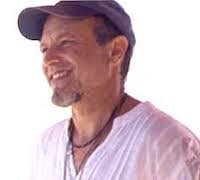When I lived in East Hampton as a young man, I played “spot the shrink” at the beach in August.
Thick glasses and a nose buried in a thick book always got our attention. Inspired by Judith Rossner’s wildly popular bestseller, August, we marveled that the psychotherapists could be so brazen and heartless as to simply pick up and remove themselves for a full month from the input of so many stories. Back then it still seemed to me that to take a month away from people in need was an outmoded European luxury of the leisured class, a pompous insistence on the difficulty and specialness of the work.
Now that I am a psychotherapist myself, I have learned that such self-care in its many forms is not so much a luxury as a lifesaving necessary for avoiding compassion-burnout, and that a month-long retreat (or more!) is by no means self-indulgent, but can be a courageous use of hard-earned savings. For my own self-care retreats, these days from the West Coast, I go even further west to a rural corner of the Big Island, where the internet is intermittent and phone service mediocre.
Now, however, from behind the thick glasses of the middle-aged shrink, I see what Emerson long ago saw: “My giant goes with me wherever I go.”
Even without Skype and FaceTime, the stories and the voices follow us professional listeners over oceans and across the globe. At the neighbor’s teetering fence, at the coconut-seller’s booth in the farmers market, at the boat ramp where the locals swim beneath the “No Swimming” sign, the avid storyteller is waiting for the patient ear, the generous eye, the empathic attention.
And why not? Who, these days, gets a full dose of attention, undistracted by technology and multi-tasking—even here on the island where “talking story” is a central and beloved tradition of leisurely narrative exchange?
The restorative practice, as I finally understand it, is to marvel at the swirl of stories as at a great natural resource: appreciatively, humbly, and in favor of it. It is to choose big, thick novels; silent, profuse weeds flagrantly asking to be pulled; lava rocks asking to be piled into a wall; wave clusters swelling up, crashing down, retreating; trance music, loud or soft.
And yet, for the story-collector, even the rocks and the weeds and waves ask for their share of narrative attention as well. Even they test the dedication of the silent pilgrim to a month away from narrative and meaning. Once deeply trained in the art of curiosity, of welcoming stories (and here of course is the crux of the dilemma), the imagination overhears story everywhere, begging to be noticed.
We cannot easily cease to catch telling phrases.
The Buddha, smiling down at me in the stairwell, asks each time I pass up or down: “What’s the big deal? Why the frown? Why the hurry?” If I do not avert my gaze, I am liable to ask back: “Well, then, what is a good, awake life? Why must you keep smiling like that without helping me?” Or: “Oh man, am I far from Enlightenment!”
I repeat a mini therapy session, up and down the staircase.
Beside him/her (for this is a full-breasted, double-sexed Buddha-long story), a long Japanese screen depicts a vast, quiet bay, with little fishermen figures eating or repairing nets on a quiet beach. “Why not join us? We’re here, not far away! Why the rush? Why complain?” If I step too slowly I get pulled into their scene and ask them back, “But where are you?”
Sometimes, most insistent of all, are the enormous, golden-edged clouds flying home before evening, endlessly evoking the eternal stories of chasing and fleeing, transmogrifying and disappearing toward the western light, distantly lingering there in the south beyond the slope of the volcano, first yellow-tinged, then orange, pink, and finally gray.
Full disclosure: I do Skype with clients who wish to, even during this retreat time. I do love to hear my neighbors’ stories, even if it means missing the parade of the evening clouds. One neighbor fled a revolution, long ago, leaving everything behind in the middle of the night. He reads the Bible every day during breaks on his backhoe. Another grew up here, the child of hippies, spat at and beaten for being a white kid in the native district, and teaches new paradigm optimism to the tourists who buy his coconuts if they are lucky enough to ask him what he’s thinking.
What story lover can resist?
One week a year, in the middle of our summer retreat, I co-facilitate a weeklong residency called Mindful Movement/Talking Story, in which we share with mainland visitors the practice of quieting down, listening for the impulse that wants to speak in the language of movement rather than words. Then we take that embodied mindfulness back into our life narratives on the mainland, practicing, until the next retreat, the slowing down of our stories with the wise impulses of our living flesh.
That, to me, is the gift of August.
~
Author: Gary Glickman, PhD
Image: Author’s Own; Rick & Brenda Beerhorst/Flickr
Apprentice Editor: Bretton Keating; Editor: Emily Bartran







Read 0 comments and reply